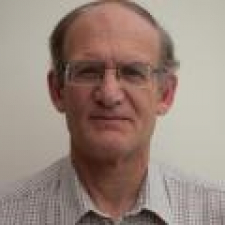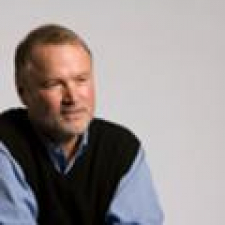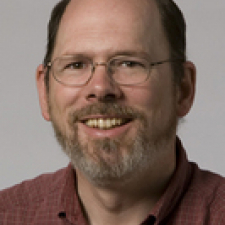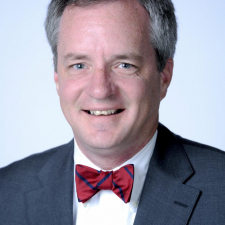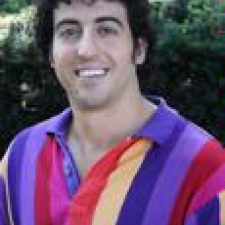The 2015 Duke Summer Institute, "Topics in the History of Economics," took place on the campus of Duke University from May 31 – June 12, 2015.
An award-winning cast of distinguished scholars (please consult the faculty bio section for evidence for this claim!) lectured and lead discussions on their areas of expertise. Topics included a history of the concept of market failure, an examination of the Chicago School of economics from a variety of quite different perspectives, a history of macroeconomics, and an exploration of the contributions of two major figures in 20th century economics, Paul Samuelson and Friedrich Hayek.
Roger Backhouse (University of Birmingham)
Bruce Caldwell (Duke University)
Kevin Hoover (Duke University)
Steve Medema (University of Colorado, Denver)
Eddie Nik-Khah (Roanoke College)
A detailed program for the two-week Summer Institute is available under "Program."
2015 Summer Institute
Topics in the History of Economics
There are 2 sessions a day, Monday through Thursday, and one morning session on Friday. The morning sessions are from 9:30-11:30 am, and the afternoon sessions from 2:00-4:00 pm. There will be a short break (5-10 minutes) half way through each session.
The readings for each session may be found at the "2015 Program" link directly below.
Sunday May 31
2-6 pm Participants arrive and register at Dorm
6:30 pm Welcome Barbecue Dinner @ The Center for the History of Political Economy, Social Science Suite 07
WEEK ONE (June 1-5)
Monday June 1: Introductions
Session 1 – Introductions of Program and Participants; Timeline - Bruce Caldwell
Session 2 – Adam Smith and the Classical Roots of Market Failure Analysis - Steve Medema
Tuesday June 2:
Session 3 – Nineteenth Century Developments: J.S. Mill and Henry Sidgwick - Steve Medema
Session 4 – Market Failure and Economic Welfare: A.C. Pigou and the Pigovian Tradition - Steve Medema
Wednesday June 3:
Session 5 – The Virginia-Chicago Challenge - Steve Medema
Session 6 – The Coase Theorem Controversy - Steve Medema
7:05 pm - Durham Bulls Baseball Game
Thursday June 4:
Session 7 – The Chicago School - Steve Medema
Session 8 – Imperial Chicago – Eddie Nik-Khah
Friday June 5:
Session 9 – The Chicago School: Still More Different Looks - Medema, Caldwell, Nik-Khah
WEEK TWO (June 8 to 12)
Monday June 8:
Sessions 10 & 11 – Will Cover the Following Three Video Lectures – Class time will be devoted to discussion
The Background to Modern Macroeconomics (before the 1930’s) – Kevin Hoover
The Great Depression: Keynes and His Critics (the 1930s) - Kevin Hoover
Macroeconometrics and the New Economics (1930-1950) – Kevin Hoover
Tuesday June 9:
Session 12 – Paul Samuelson and Modern Mathematical Economics – Roger Backhouse
Session 13 – The Empirical Microfoundations of Macroeconomics (1945-1970) - Kevin Hoover (video)
Wednesday June 10:
Session 14 – Paul Samuelson and the Keynesian Revolution in America – Roger Backhouse
Session 15 – The Problem of Inflation (1950-1970) - Kevin Hoover (video)
4:00pm – Visit David M. Rubenstein Rare Book and Manuscript Library
Thursday June 11:
Session 16 – The Monetarist Counter-Revolution (1955-1975) - Kevin Hoover (video)
Session 17 – New Classicals and New Keynesians (1970-1985) – Kevin Hoover (lecture)
6:30 pm- Closing Dinner at Tyler’s Taproom, Durham
Friday June 12:
Session 18 – F. A. Hayek, His Life and Ideas – Bruce Caldwell (video)
The final hour of Session 18 will be a Summer Institute Wrap-Up – no readings.
12 noon to 3:00pm: Check out of dorm
|
Roger Backhouse is Professor of the History and Philosophy of Economics at the University of Birmingham and Erasmus University Rotterdam. After originally specializing in macroeconomic theory he turned to the history and methodology of economics, writing a series of books including The Ordinary Business of Life (2002), The Puzzle of Modern Economics (2010) and Transforming Modern Macroeconomics: Exploring Disequilibrium Microfoundations (with Maruo Boianovsky, 2013). With Philippe Fontaine, he has edited a series of books on the history of the social sciences: The History of the Social Sciences since 1945 (2010), The Unsocial Social Science? Economics and Neigboring Disciplines Since 1945 (2010), and A Historiography of the Modern Social Sciences (2014). He has spent the last three academic years working full time on an intellectual biography of Paul Samuelson, supported by a Leverhulme Trust Major Research Fellowship.
|
|
Bruce Caldwell is a Research Professor of Economics and the Director of the Center for the History of Political Economy at Duke University. He is the author of Beyond Positivism: Economic Methodology in the 20th Century (1982), of Hayek's Challenge: An Intellectual Biography of F. A. Hayek (2004), and since 2002 has served as the General Editor of The Collected Works of F. A. Hayek, a multi-volume collection of Hayek’s writings. A past president of the History of Economics Society and of the Southern Economic Association, he is currently working on a family-authorized biography of Hayek. When he's not working on Hayek, he doesn't know what to do, but sometimes he fills his time with tennis and golf.
|
|
Kevin Hoover is Professor of Economics and Philosophy at Duke University. Educated at the College of William and Mary, the University of St. Andrews, and Balliol College, Oxford, he has previously held positions at the Federal Reserve Bank of San Francisco, University of Oxford (Balliol College, Nuffield College, and Lady Margaret Hall), and the University of California, Davis. He is past president of the History of Economics Society, past chairman of the International Network for Economic Method, past editor of the Journal of Economic Methodology, and current editor of the journal History of Political Economy. He is the author of more than one hundred books and articles in a variety of areas, including the history of economics, macroeconomics and monetary economics, and the methodology and philosophy of economics and econometrics.
|
|
Steven G. Medema is Professor of Economics, President's Teaching Scholar, and the Director of the University Honors and Leadership Program at the University of Colorado Denver. He received his B.A. from Calvin College and his PhD from Michigan State University. Dr. Medema is the author of numerous scholarly books and articles, including The Hesitant Hand: Taming Self-Interest in the History of Economic Ideas (Princeton, 2009) and Economics and the Law: From Posner to Post Modernism and Beyond (Princeton, 2006). He served as Editor of the Journal of the History of Economic Thought from 1999-2008 and as President of the History of Economics Society in 2009-10. Dr. Medema's current research project explores the history of the use of the Coase theorem in economics, law and beyond. |
|
Eddie Nik-Khah is Associate Professor of Economics at Roanoke College. He received his BA in Economics, Philosophy, and Political Science from Rockhurst University and his MA and PhD in Economics from the University of Notre Dame. For his research on the political economy of market design, the European Association of Evolutionary Political Economy awarded him the K. William Kapp Prize. He has completed research on interactions between the Chicago School of Economics, the pharmaceutical industry, and phamaceutical science, the neoliberal origins of economic imperialism, the distinctive role of George Stigler as architect of the Chicago School, and the tensions emerging from economists' assumption of a professional identity as designers of markets. He is currently writing a book with Philip Mirowski on the history of knowledge and information in twentieth century economics.
|
Please join us in welcoming the 2015 Summer Institute students. We have selected students from Universities all over the world to be at Duke and the Center for the History of Political Economy from May 31 through June 12. They will attend lectures on the history of economics. This will be the sixth year in a row that the Center has hosted a Summer Institute. For more on the Institute, please visit the Institute's home page on the Center's website.
|
Amal Ahmad I graduated from Amherst College (BA) and the University of London (MS), and will be starting my PhD in Economics at UMass Amherst this fall. Originally from Palestine, I am interested in economic development particularly in conflict zones. My research so far has focused on the fiscal and monetary aspects of the Israeli-Palestinian conflict, an area I hope to pursue further in my doctoral studies. Although my work is not primarily historical, it employs a critical and comparative approach toward economic theory and draws on both mainstream and heterodox traditions. I like to read and travel around sunny states in my free time. |
|
Pedro E. Cadenas is a PhD candidate in economics at The New School for Social Research in New York city, currently working on economics and cognitive science with applications into health economics. Pedro's main academic interests also include philosophy of economics, history of economic thought and Bayesian reasoning/statistics. Before coming to the New School for Social Research, he worked for some time at the private and public sector while completing a M.Sc. in Philosophy and Human Sciences and obtaining an M.B.A. in Finance. |
| Laura Cardwell from Portland, OR. I received my BA in Economics from Portland State University in 2009, my MA in Economics at University of Missouri-Kansas City in 2011 and am currently pursuing my PhD in Economics at UMKC. My research interests include History of Economic Thought, Political Economy, Heterodox Microeconomics, and the institution of the household. My current research is aimed at theoretical understanding of the roles and functions of the household within the economic system. I am active in my community. I enjoy nature, gardening, hiking and travel. I am looking forward to meeting the participants of the Summer Institute and sharing ideas with one another. |
|
Abigail DeHart is a recent graduate of Grand Valley State University, and is starting the MPhil in Political Thought and Intellectual History programme at the University of Cambridge this fall. My research interest lies in early modern political thought and the growing commercialization of society in Europe. After completing a yearlong research project in India on economic issues of education, my interest was piqued in economic history. I aim to further pursue a PhD with a historical focus on economic issues of education. At the Institute this summer, I hope to better familiarize myself with more recent work in economic history. In my free time you can find me playing music, reading, or running. |
| Anthony R. Delmond will enter his third year of the Economics PhD program at Washington State University in the fall. Originally hailing from Florida, he graduated from the University of North Florida with BA degrees in English and economics. He holds a master’s degree from the London School of Economics where his studies focused on Latin American economic development. In addition to economic history, Anthony’s research interests include environmental, behavioral, and development economics. At the Duke Summer Institute, he hopes to gain a better working knowledge of the evolution of economic philosophy to incorporate in his future work. He is an enthusiastic traveler, an avid reader, and a passionate patron of the arts. |
| Erich Pinzon Fuchs I am currently a Ph.D. candidate in Economics at the University Paris 1 Panthéon-Sorbonne. Originally, I come from Colombia, where I did my undergraduate studies in Economics at the National University. I have spent some time living in Germany and in France, where I completed my MA in Epistemology and Economic Philosophy. My work deals with the history of econometrics and notably with the role that Lawrence R. Klein played in the dissemination and consolidation of macroeconometric modeling between the 1940s and 1960s. In my spare time I adore travelling, cycling and hiking. |
| Tobias Martin Hlobil I am a PhD candidate in the third and final year of the European Doctorate in Law and Economics (EDLE). I did my undergraduate studies at the Erasmus University Rotterdam in Economics & Business. In addition to studying economics, I’ve taken numerous Law courses and spent a year abroad at the Warwick School of Law. I’ve obtained a joint master’s degree in Law and Economics (EMLE) from the universities of Hamburg, Bologna and Vienna in 2012. Attending this year’s Summer Institute is for me dream come true and I look forward to learning from and discussing with everyone there. At the end I hope to leave with new friendships and an idea for a paper to join the conversation that is the History of Economic Thought. In my spare time I enjoy walking and visiting new places. |
| Anne Hobson is a graduate student at George Mason University. Originally from Northfield, Illinois, she graduated from Johns Hopkins University with a BA in international studies. Her research interests include Cuban history, development economics, and regulatory policy. Beginning this summer, Anne will be conducting research on the effects of remittances on populations in Guatemala and Cuba. By participating in this summer institute, she hopes to explore the theoretic justifications for regulations, as well as the role of social norms and formal market mechanisms in governing human action. Anne previously worked as an outdoors instructor and enjoys climbing, kayaking, and playing soccer. |
| Nic Johnson is a PhD Candidate at Johns Hopkins University in the economics department. I received BAs in mathematics, statistics, and economics from the University of Minnesota. My research interests are primarily in history of thought, monetary economics, and economic history. I am currently trying to figure out what the stormy 70s meant for macro by looking at the life and influence of Robert Lucas Jr. My dog's name is Giffen because I have an upward sloping demand curve for him. |
| Rebecca Livernois is a Master’s student in philosophy at the University of British Columbia (UBC). She holds a double major in economics and philosophy from the University of Guelph and a Master’s degree in economics from UBC. She intends to pursue doctoral studies in the philosophy of economics. She is particularly interested in environmental economics and climate change policy, and the extent to which rational choice and decision theory can elucidate the mismanagement of public goods. As such, she looks forward to learning about historical interpretations of market failure at the Summer Institute. More generally, she looks forward to bridging her knowledge of economics and philosophy in part by learning about the history of economics. In her spare time, she enjoys being outdoors, good TV, and making things (music, art, food). |
|
Nicolas Mäder Having received my B.A. from the University of St. Gallen in Switzerland, I am currently a first-year Ph.D. student in Economics at Vanderbilt University. Before joining Vanderbilt, I worked for the Swiss Department of Foreign Affairs at the Consulate General in Atlanta and the Embassy in Washington, DC. My primary fields of interests are financial stability and monetary economics. At the Summer Institute, I hope to gain insights on how the great depression has shaped the way we approach and teach economics today. My hobbies include traveling, playing tennis and watching American football. |
| Sonia Manseri I am a student at the Ecole Normale Supérieure de Cachan (ENS-Cachan). I completed my undergrate program and my MA program at the Université Paris 1- Panthéon- Sorbonne. My speciality is Advanced Economic Theory and the History of Macroeconomics. I am spending this year abroad to get a glimpse of the world of research, before starting my PhD in September 2015. I spent the first part of the academic year in the United Kingdom and then, I joined CHOPE in January 2015 to pursue some archivistic work. I am currently studying the papers of Evsey Domar, which are accessible at the Rubenstein Library. I like theater, cinema and any form of art or culture. |
| Raymond C. Niles I am completing my PhD in Economics at George Mason University. I hold an MBA in Finance and Economics from New York University. Prior to enrolling at George Mason, I worked for a number of years on Wall Street as a stock analyst and investment manager. My research interest is the business cycle, specifically incorporating the ideas of Joseph Schumpeter with the Austrian School theorists, especially Friedrich Hayek Schumpeter’s business cycle theory sees it as natural and inherent in capitalism, as part of a valuecreating process. This is a unique and fruitful perspective, which I intend to explore further in my studies of history of thought, and apply it to presentday economic and policy issues. |
|
Melati Nungsari I recently defended my dissertation in pricing and matching on two-sided platforms with the Department of Economics at UNC-Chapel Hill. I will be joining Davidson College this fall as a Visiting Assistant Professor of Economics. I attended Knox College in Galesburg, Illinois as an undergrad, where I graduated as an economics and mathematics double major, with honors in mathematics. My research interests include applied microeconomics (industrial organization, search, matching) and economic education. This summer, I am hoping to learn about the history of economics in order to inform my teaching practices. Outside of economics, I enjoy cooking, spending time with my family (and two cats), trying out new restaurants, and running. |
|
James Abordo Ong received an MLitt. in Philosophy at the University of St. Andrews and has recently completed his Ph.D. in Philosophy at Duke University under the supervision of David B. Wong. He is currently working on a book manuscript that reframes ‘difference’ as the singularity of each individual’s lived experiences, and demonstrates how inhabiting such difference engenders empowering modes of cooperation and meaningful social change. He received his bachelor’s degree in Business Management and Accountancy from the University of the Philippines. Before returning to academia, he was Head of Financial Management in the South Korean subsidiary of one of the world's largest financial institutions, Allianz. He plans to integrate what he will learn from the summer institute into his future research and teaching. |
|
Alex Oprea I am originally from the town of Ploiesti in Romania. I first came to the US in 2007 and have stayed in Durham, NC ever since. I was a Duke undergraduate studying economics and political science, then a statistician employed by the Sanford Public Policy Institute and now I'm a third year PhD student in political theory. My research interests include conversations at the intersection of economics, history and philosophy, political education, political socialization and the distinctions different societies draw between childhood and adulthood. I also help coordinate a working group on "Humor and Politics" that keeps me smiling, winking, smirking and occasionally laughing out loud. |
|
Onur Özgöde received his Ph.D. in Sociology from Columbia University in February, and he will be joining the Institute for Global Law and Policy at the Harvard Law School this summer as a Post-Doctoral Fellow. Originally from Turkey, he studied operations research and economics at the undergraduate level at Columbia. Onur’s research traces the transformation of liberal forms of economic governance as experts problematize and subsequently solve emergent techno-political and -economic problems. He is currently working on a book manuscript, Governing the Economy at the Limits of Neo-Liberalism: The Genealogy of Systemic Risk Regulation in the United States, 1922-2010. This work examines how systemic (financial) risk was assembled as a monetary pathology of the economy between the 1970s and the 1980s, and how the new systemic risk regulation regime, instituted under the Dodd-Frank Act, rearticulates monetary government with the systemic tools developed for resource and mobilization planning during the New Deal and the Cold War. |
| Germán Scalzo earned his undergraduate degree in Business Administration from the Austral University (Argentina), as well as a Master's and PhD in Government and Organizational Culture from the University of Navarra (Spain). His previous work experience includes as a professor at the Austral University (Rosario, Arg.), a Sales Representative at Johnson & Johnson of Argentina and as Human Resources and Corporate Social Responsibility Manager at Openware Globant. He served on the board of Global Compact in Argentina and founded a civil association for the promotion of CSR in the region, of which he was Managing Director until mid-2008, when he traveled to Spain to continue his studies. In October 2012, Dr. Scalzo defended his doctoral thesis entitled, "The genesis of modern economic rationality," under the direction of Dr. Miguel Alfonso Martinez Echevarria and for which he unanimously obtained highest honors. He has conducted research stays at Vrije Universiteit Amsterdam and The Catholic University of America and, in 2013, he won the Robin Cosgrove Prize for Ethics in Finance. He is currently a professor of Business Ethics at Universidad Panamericana (Mexico), as well as a visiting professor at Universidad Santo Toribio de Mogrovejo (Peru) and Strathmore University (Kenya). |
| Jason Schulman is a research analyst in the office of University Development and Alumni Relations at New York University. He received his Ph.D. in History from Emory University in August 2014. His research interests include modern American History, Legal History, and Jewish History. He has worked at the New America Foundation, the Center for Strategic Studies, and Sidwell Friends School. His personal interests include long walks, basketball, and chocolate. Originally from New Jersey, he received his B.A. in History and American Studies from Columbia University, and he spent a semester abroad at the University of Melbourne, Australia. |
| Pragya Singh is a PhD candidate in the department of economics at UNC-Chapel Hill. Prior to that, I pursued a M.S. in Quantitative Economics at the Indian Statistical Institute, Delhi and a B.A. Hons. In Economics from University of Delhi. My current research interests are in the fields of Health Economics, Industrial Organization and Applied Econometrics. My dissertation research focuses on the information frictions present in the market for complex products like health insurance and their welfare consequences on consumers’ health and expenditures. At the 2015 Duke Summer Institute, I hope to participate in stimulating discussions on the ideas of the great philosophers and economists of the past centuries and develop a bigger picture perspective on the contribution of my work in relation to the field of economics as it has evolved over the years. |
| Atiyeh Vahidmanesh is a PhD candidate in economics at Virginia Polytechnic Institute and State University. She is also pre-doc research fellow at the Middle East Initiative at Harvard Kennedy School of Government. Originally from Iran, Atiyeh joined to Virginia Tech in 2011, after receiving her master degree from Sharif University of Technology. She completed her undergraduate studies in Industrial engineering at Sharif University of Technology. Her current research is about inequality of opportunity in education. She is also interested in political economy and currently works on political behavior of Iranian people in 2005 presidential election. She has been working as a research fellow since last September. At Harvard, she focused on her thesis with concentration on the Middle Eastern countries. From Duke Summer institute, she is hoping to learn more about history of economics and how past thoughts shapes our current views. Atiyeh is interested in economic history, philosophy of economic thoughts and economic methodology and she thinks Duke Summer institute is a right place to hear about these topics. |
